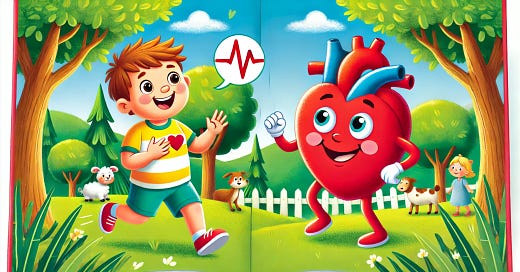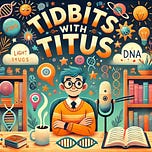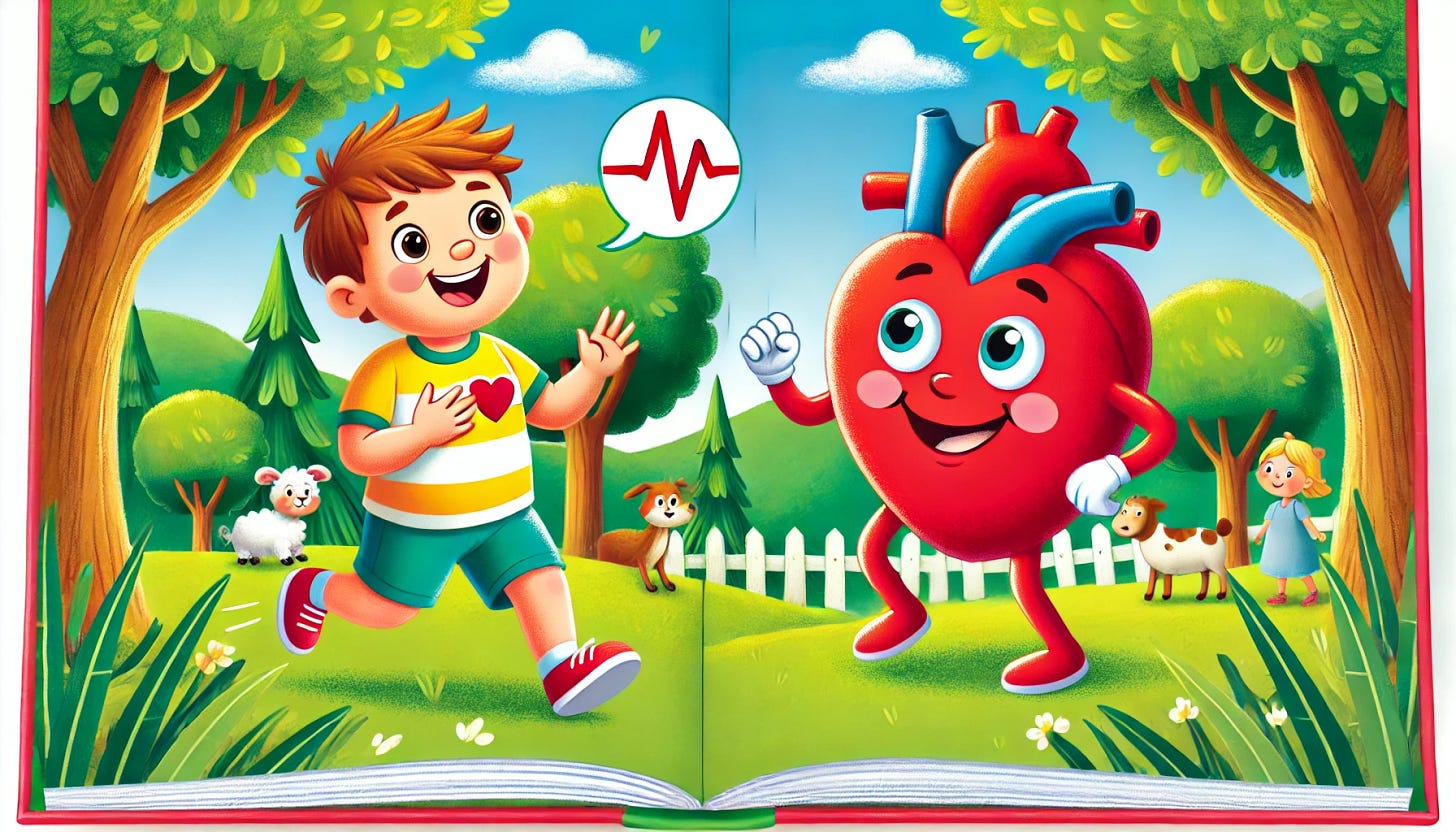Introduction
Have you ever noticed that when you run really fast, your heart starts to beat faster? Maybe after playing tag, jumping rope, or racing with your friends, you feel your heart pounding in your chest. But why does this happen? Let’s explore the amazing ways our hearts help our bodies when we run!
Hello my friends!
For a quick note, welcome to Tidbits with Titus, a podcast and newsletter where we tackle the big, curious questions kids ask every day in fun, bite-sized ways! I’m Alexander Titus, but I go by Titus. I’m a scientist, adventurer, and a huge fan of making science, technology, and life accessible to all ages. From “How does electricity work?” to “What are taxes?” and even “Why is the sky blue?” I’m here to dive into these wonder-filled questions with engaging stories and simple explanations that spark curiosity and make learning a joy. This effort is all about creating a space where families can learn together, discover the magic of the every day, and find thoughtful ways to explore the world’s big mysteries. Let’s make curiosity a family tradition—one tidbit at a time!
Just so you know, these podcast episodes are all AI-generated using Google’s really cool NotebookLM technology. That means there are some errors in how words are said, but that is part of the fun!
If your little ones have questions that you want help answering, shoot me an email at questions@tidbitswithtitus.com and I’ll see what I can do!
You can subscribe to the newsletter that has this information as well at tidbitswithtitus.com.
Also please share with anyone you think would be interested. The more the merrier!
Cheers,
-Titus
What Does the Heart Do?
Your heart is a muscle that works like a pump. It moves blood all around your body. Blood carries oxygen and nutrients to every part of your body to help you stay strong and healthy.
Your heart beats all the time, even when you are sleeping. You can’t feel it working most of the time, but it is always busy keeping you alive. When you are resting, your heart beats slowly. But when you run, jump, or play, it beats faster! Let’s find out why.
Why Does Your Heart Beat Faster When You Run?
When you start running, your muscles need more oxygen and energy to keep moving. Your heart beats faster to pump more oxygen-rich blood to your muscles. This helps you keep running and gives your body the power it needs.
Imagine your heart is like a delivery truck. When you are sitting still, the truck moves slowly, making deliveries. But when you start running, the truck needs to go faster to make more deliveries. Your heart does the same thing—it beats faster to deliver oxygen and nutrients to your muscles!
How Fast Can Your Heart Beat?
Your heart rate, or the number of times your heart beats in a minute, is different when you are resting and when you are active.
Resting Heart Rate: When you are sitting or lying down, your heart beats about 60 to 100 times per minute.
Active Heart Rate: When you run or play, your heart can beat 120 to 200 times per minute!
The faster your heart beats, the more oxygen your body gets. That’s why you might breathe harder when you run, too—your lungs are helping bring in more oxygen!
How Can You Feel Your Heartbeat?
You can feel your heart beating by checking your pulse! Try this:
Place two fingers on the side of your neck or on your wrist.
Press gently and count how many beats you feel in one minute.
Now, try running in place for 30 seconds and check your pulse again. Do you feel it beating faster?
This is a fun way to see how your heart works!
Does Everyone’s Heart Beat the Same Speed?
Not everyone’s heart beats at the same speed. Some things that change how fast your heart beats include:
Age: Kids’ hearts usually beat faster than adults’ hearts.
Exercise: People who exercise a lot might have a slower resting heart rate because their hearts are very strong.
Feelings: If you are excited, scared, or nervous, your heart might beat faster—even if you’re not running!
Why Does Your Heart Slow Down After You Stop Running?
When you stop running, your muscles don’t need as much oxygen, so your heart doesn’t have to work as hard. It starts to slow down and go back to its normal resting rate.
If you pay attention, you can feel this happening. Try running in place for a minute and then put your hand on your chest. Feel how fast your heart is beating? Now, sit quietly and count your pulse every minute. You will notice your heart rate slowly going back to normal!
How Can You Keep Your Heart Healthy?
Your heart is one of the most important parts of your body, so it’s important to take care of it! Here are some ways to keep your heart strong and healthy:
Exercise every day: Running, jumping, and playing help make your heart stronger.
Eat healthy foods: Fruits, vegetables, and whole grains give your heart the nutrients it needs.
Drink water: Staying hydrated helps your heart pump blood more easily.
Get enough sleep: Rest helps your heart stay strong.
Stay happy and relaxed: Too much stress can make your heart work too hard. Playing, laughing, and relaxing are good for your heart!
Fun Facts About Your Heart!
Your heart is about the size of your fist.
Your heart beats about 100,000 times a day!
If you lined up all your blood vessels, they would stretch around the Earth two times!
The loudest heartbeat ever recorded was heard from over 10 feet away!
A whale’s heart is so big, a person could crawl inside it!
Conclusion
Your heart is an amazing muscle that keeps your body moving. When you run, your heart beats faster to send oxygen and energy to your muscles. Then, when you stop running, it slows down again. Keeping your heart healthy with exercise, good food, and rest will help you stay strong and full of energy!
So next time you feel your heart beating fast after running, remember—it’s just doing its job to keep you going! 💖🏃♂️














Share this post